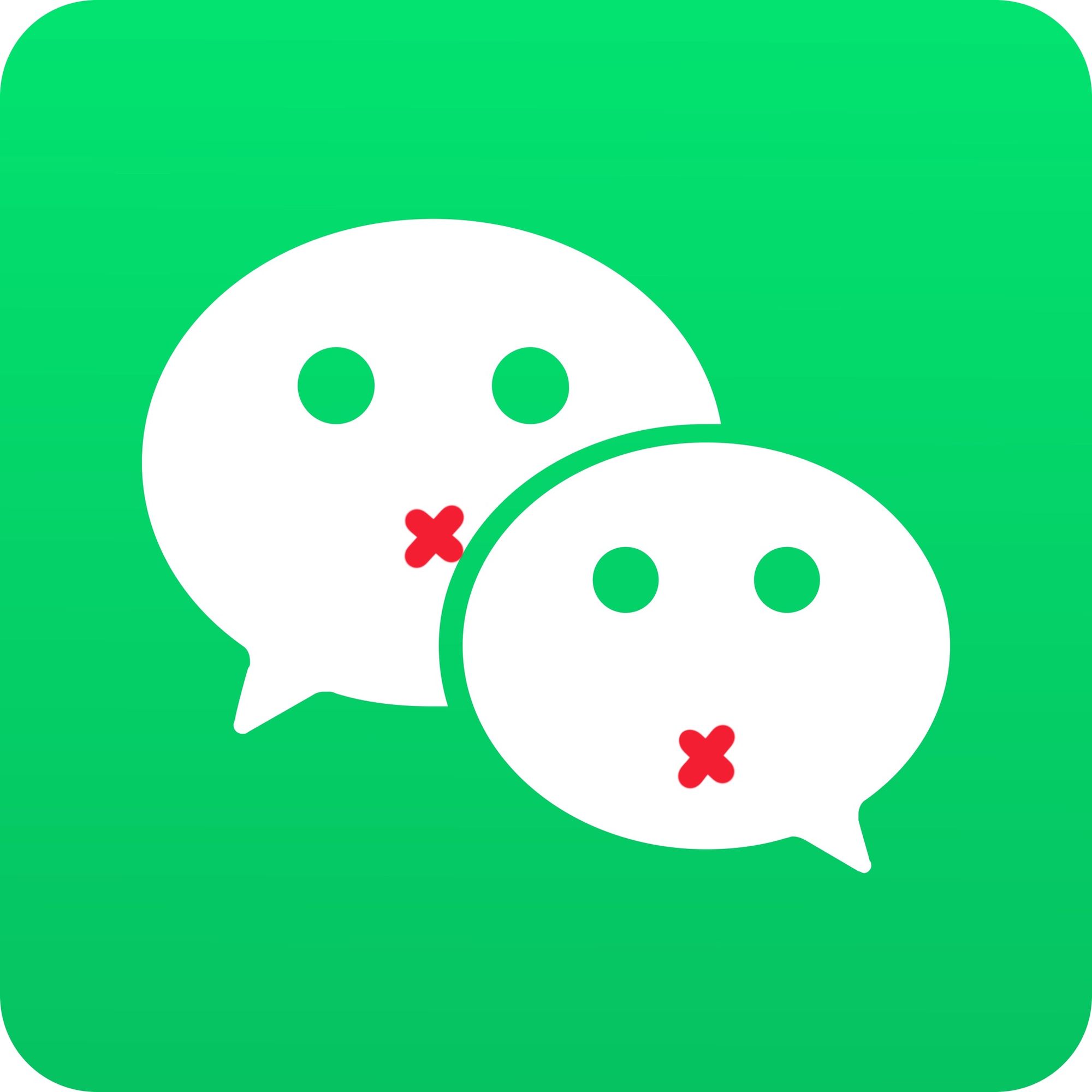Why You Should Not Use WeChat

Since 2014, a large number of WeChat accounts have been temporarily or permanently banned. Most of the people who have been banned do not understand what they have done wrong, so they complained, self-claimed innocence, and begged WeChat officials for mercy. Only at this moment did people suddenly realize that their control over WeChat accounts was so fragile: it turns out that we never have ownership of our own accounts.
Vague rules and unpredictable whistleblowers
WeChat is by no means suddenly showing its ugly face for the first time. We have long been accustomed to links in groups or moments that cannot be opened, and we have long learned to avoid talking about certain topics and words. We re-used Pinyin to express our obscure views, and we are used to self-supervision in group chats to ensure the safety of group owners.
WeChat has been monitoring us, and we know this well. But is it the bad guys hiding in the moments, or the ubiquitous big data algorithm? What exactly did we do and what rules we violated? WeChat never gave details. There are no open and transparent rules, no open trials and debates, and only WeChat has the final decision. Therefore, we can only continue to deepen our self-censorship, reverse the pictures, blur the text, and invent new lingoes, as if it were an arms race.
However, we are always losers. A self-deprecating joke in moments may also be reported inappropriate; a common sense message may also become a political rumor in the eyes of the whistleblowers. In such an environment, the only safe moments is to stop posting moments.
Deprived user rights
We are facing reviews from WeChat, and WeChat is also subject to inspection by higher authorities. Therefore, for our safety and Wechat’s own safety , WeChat decided to help us wipe out our voice in advance.
WeChat will not prevent us from sending out a message, but it will prevent others from reading it. And it’s an even strange phenomenon that some people can see information and some cannot see in group chats. However, as the sender of the information, no reminder was received. Before losing ownership of our account, we have long lost its full right to use it.
The seemingly prosperous content ecology does not promote real public discussion
Ubiquitous audits, risks of being reported from time to time, incomplete user rights, account deletion that cannot be appealed, and exposure of real names without privacy protection. What have we exchanged for security, privacy and freedom? Indeed, WeChat is an efficient communication software, which allows us to obtain seemingly rich information and feed tens of thousands of self-media. But many important issues have been masked by "efficiency" and "prosperity".
The articles you read on WeChat cannot provide enough rich and true information because they cannot quote external links. The original Internet was a large network composed of hyperlinks, and WeChat was essentially just a local area network. We couldn’t even attach or open external links in WeChat. The articles on the WeChat account became isolated islands.
The content of WeChat may be deleted at any time due to violations of regulations. No author can anticipate that his or her 100k+ views about public events will survive till tomorrow or not.
WeChat cannot discuss public articles in depth, resulting in narcissistic opinio. The comment area of the WeChat public account is limited to a round of discussions with author, and we cannot communicate with other readers. What kind of messages can be released depends entirely on the public account administrator. The so-called comment area is usually just decorated with applause and flowers.
Isolated, Arbitrary, Narcissistic — this is WeChat’s product design logic. In this environment of speech that cannot quote or be quoted, cannot be guaranteed to survive, cannot be discussed and questioned, it is full of click baits, “spiritual opium” that pleases readers, and self-righteous stupidity.
We must be clear that there is no social tool within GFW that can save us from censorship, being blocked, or even being summoned. WeChat is just the tip of the iceberg where the authorities systematically suppress the rights of freedom of speech. The social platforms and communication apps within GFW, such as Douban, Zhihu, Weibo, and TikTok, are all the same.
Fortunately, the Internet is huge, and we have other options.
Get rid of WeChat and use Telegram
Openness and freedom is the soul of telegram, and security is the gene of telegram, and at the same time, Telegram has almost every single function which WeChat has:
Group, can replace WeChat group. Telegram groups can hold 200,000 people. Public groups can be searched at will and you can join them directly.
Channel, can replace the public account. The channel can send any form of files to subscribers, with unlimited content and frequency. Channel creation does not require any review, and managers can set up discussion groups directly under the channel to provide a free and open platform for discussions with viewers.
Bot, can replace small programs. The difference is that bots are extremely flexible and can be easily owned by every group. It can help you answer members' questions, help you count votes, and help you post messages regularly. It can even become an interactive interface for taxi software to help you send and receive WeChat messages.
Telegram is safe enough. Here, political censorship is almost non-existent, and it is difficult for the government to obtain user chat data. Telegram provides secret chat function and burn after reading function, using end-to-end encryption, even Telegram company can not decipher the user's chat content. In addition, your account number and bounded mobile phone number can be modified at any time. It is difficult to be reported by other users, and it is difficult to locate individuals even after reporting.
Telegram inherits the true Internet spirit. It is open enough, and there is no barrier to the external: groups, channels, robot assistants, as long as they are set to be publicly visible, they can be directly retrieved by search engines such as Google through URL links. As long as it is the content you care about, you can use the search engine, cross the platform, join the group, and meet friends. And this is the future that the Internet promises to us.
No Freedom No Speech
Copyright statement: Unless otherwise stated, all articles on this blog adopt the CC BY-NC-SA 4.0 license agreement. For non-commercial reprints and citations, please indicate the author: Henry, and original article URL. For commercial reprints, please contact the author for authorization.
